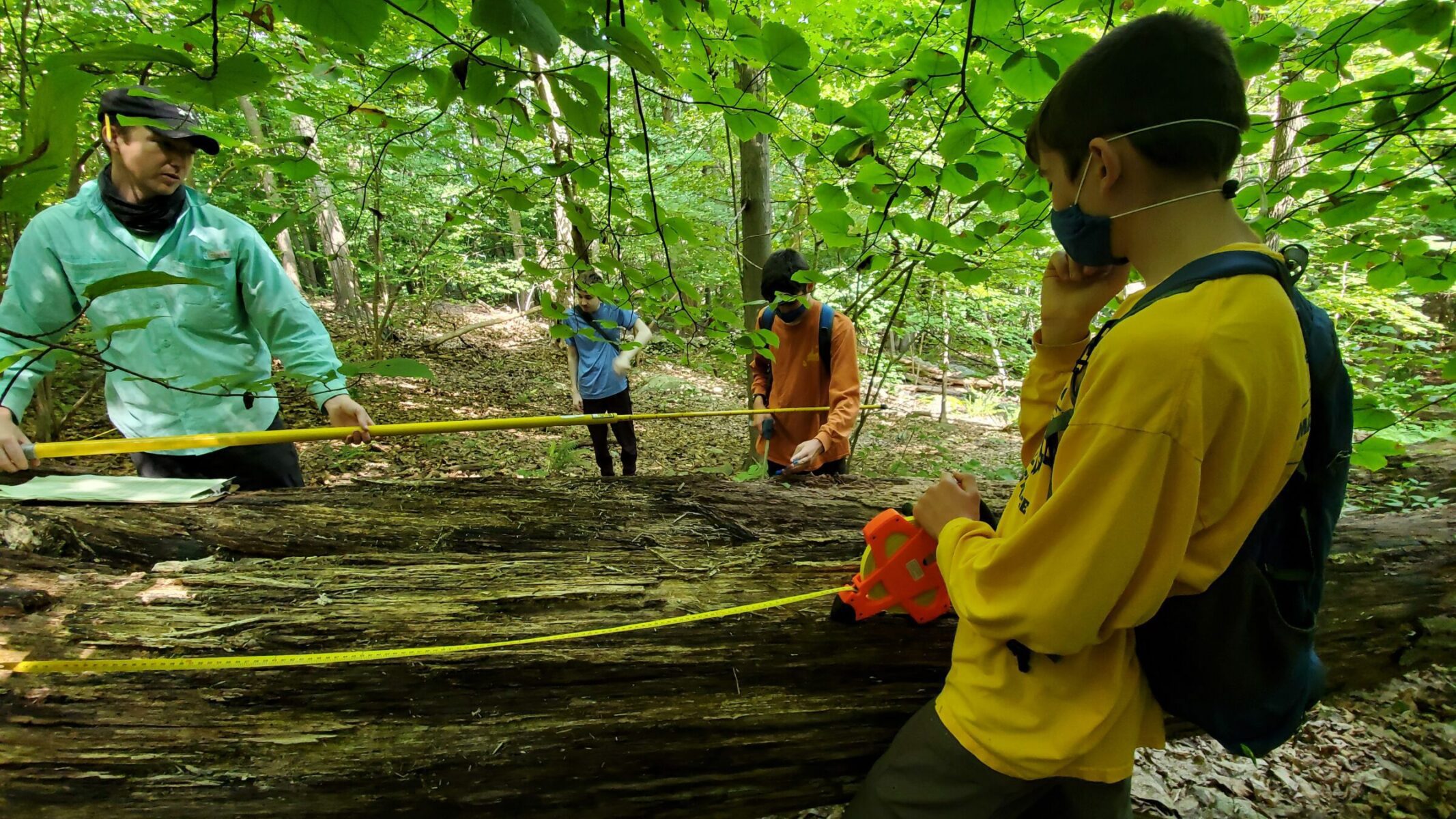Our postdoc position is currently filled. Please check back for updates.
The Black Rock Forest Postdoctoral Fellowship is a two-year, endowed fellowship awarded on a competitive basis to advance the study of forest ecology.
Black Rock Forest is a non-profit, research, education, and conservation organization founded in 1989 that uses its 1586-hectare forest as a scientific field station to advance our understanding of the natural world. Together with our postdoctoral fellows, we seek to expand our ecological research activities related to forest ecology and environmental change, while propelling early-career researchers forward.
The successful candidate will have recently completed a Ph.D. with clear plans to investigate one or more of the most critical current issues in forest ecology.
Our goal is to provide the setting and academic freedom for our Fellows to think big. This Fellowship will provide postdoctoral scholars the opportunity to deepen their expertise in a key area of terrestrial forest ecology while enhancing their research through cross-disciplinary interaction with scientists in other life science and earth science fields. We encourage applicants to take full advantage of our unique opportunities, including our inhouse lab facilities, forest road network, wifi mesh network, possibilities for manipulative experiments, and co-appointment at Columbia University’s Lamont Doherty Earth Observatory. We endeavor to expect little external responsibilities of our Fellow beyond periodic updates and opportunities for disseminating their research, providing the fellows with a nearly complete focus on researching.
The research field(s) of our Fellow should fall under the umbrella of “forest ecology”, broadly defined. Applicants are encouraged to explore possible collaborations with Black Rock Forest staff, our Consortium members, and beyond.
The Fellow will hold a contracted position at Black Rock Forest reporting to its Executive Director. The Fellow will also hold a postdoctoral appointment within the Biology and Paleo Environment Division of Columbia University’s Lamont Doherty Earth Observatory.
The Fellow will be provided with an office and shared lab space within our Science Center (235 Reservoir Rd, Cornwall, NY) and is expected to conduct a significant portion of their field research within Black Rock Forest or in close proximity when necessary.
The Fellowships are supported by an endowed fund managed by Black Rock Forest and the Fellow will receive an annual stipend of $66,000 and a research allowance of $7,500 plus individual ACA-compliant health insurance. If desired, housing is available for the Fellow and immediate family at a Forest-owned residence (129 Continental Rd, Cornwall, NY).
Instructions for applying:
Prospective Fellows should apply via the fellowship portal at Lamont-Doherty Earth Observatory. However, Black Rock Forest will entertain postdoctoral scholar applications outside of the annual cycle if circumstances permit. Interested scholars should contact the Research Scientist if outside of the application window.
In addition to the requirements and instructions listed by the Lamont-Doherty Earth Observatory, we strongly recommend applicants familiarize themselves with Black Rock Forest research and contact Black Rock Forest Research Scientist, Dr. Scott LaPoint (slapoint@blackrockforest.org), to discuss feasibility of any proposed research agenda.
Applicants are also required to identify an academic mentor at Columbia University and/or Lamont-Doherty Earth Observatory who will submit an attestation letter stating their willingness to assimilate and sponsor the Fellow within their respective Department. A direct email to Dr. LaPoint from the academic mentor’s columbia.edu or ldeo.columbia.edu email address stating the above is sufficient.
(Deadline extended to Monday, November 14.)
Previous Black Rock Forest Fellows:
Dr. Grayson Badgley – Grayson’s research interests are broad, but often focused on plant ecophysiology combining field-, lab-, and satellite-derived data to refine models and better understand global-scale biogeochemical cycles. Grayson is now a Research Scientist for CarbonPlan, a non-profit objectively and quantitatively investigating climate solutions. See this excellent LA Times article featuring Grayson’s work during his time at Black Rock Forest.

